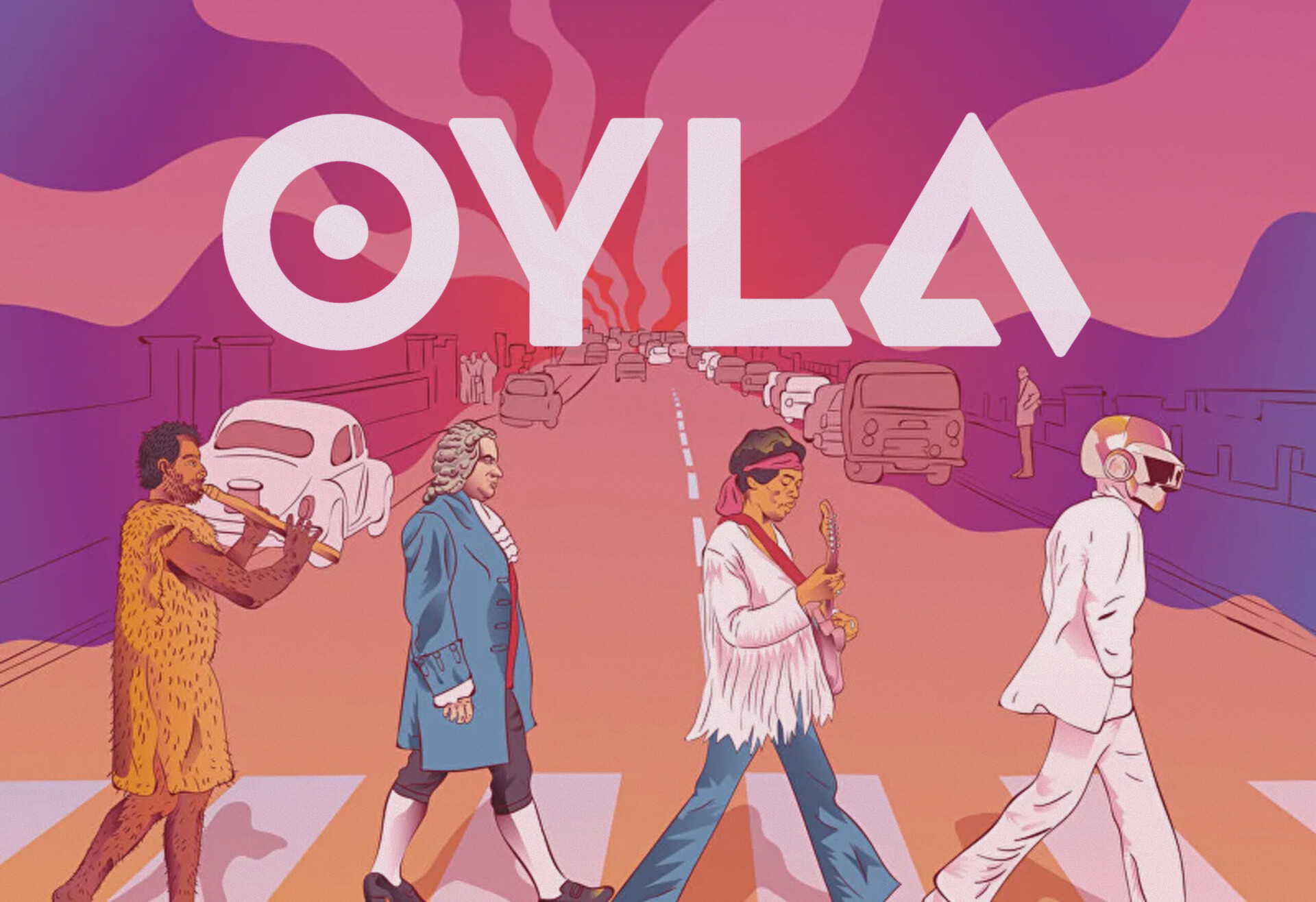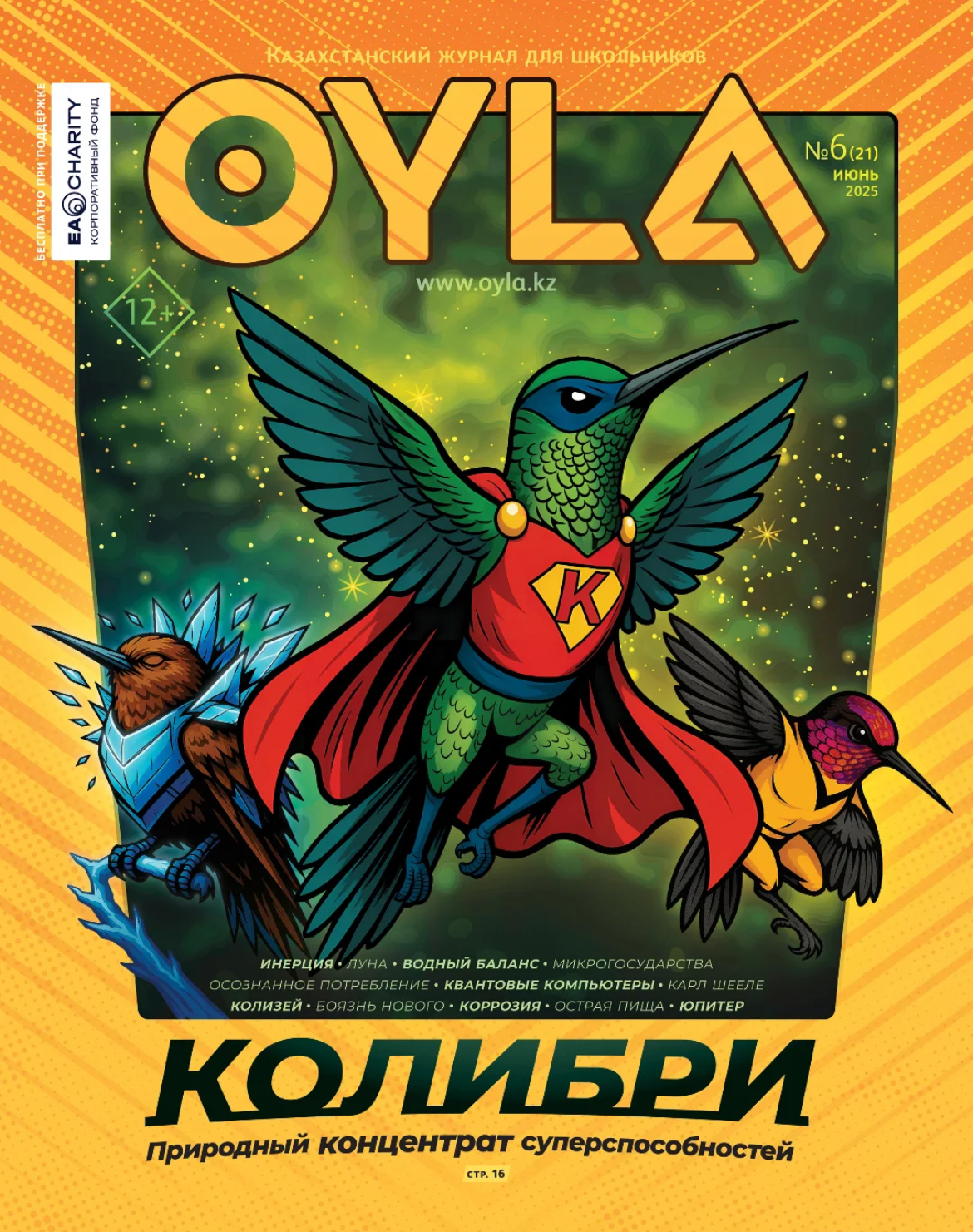
Modern kids live in a world where gadgets and information are easily accessible. Their perception has become fragmented – short videos, fast-changing images, minimal effort. As a result, children read far less, and with that, they’ve lost some of their ability to understand and analyze.
That’s why the OYLA team came up with the idea to bring back paper magazines and science. It wasn’t about preparing for Olympiads or developing advanced technologies; it was about simple curiosity, critical thinking, asking questions, and drawing conclusions.
According to Yerdos Tulegenov, founder of the science magazine OYLA,: «We used to read Quant or Young Technician and say to ourselves: «Now I understand why we use this formula»».
That’s how the magazine was born, an example of social entrepreneurship in Kazakhstan. On one hand, it has a clear social mission: to make high-quality STEM (Science, Technology, Engineering, and Mathematics) content accessible to schoolchildren, teachers, and parents. On the other hand, it’s built on a sustainable business model through subscriptions, franchises, and corporate partnerships.
To be a calm «teacher» – one who doesn’t rush, doesn’t distract, but patiently explains everything.
It’s not always possible to fully cover a topic in a 40-minute class, –says Yerdos.
Our team focuses on a few key issues: the lack of quality STEM content, the shortage of materials in Kazakh and bilingual formats, and the gap between real-life knowledge and textbook formulas. OYLA helps bridge that gap, bringing theory with practice.

Creating quality content is not easy. We faced a shortage of staff who could adapt complex topics into simple, engaging explanations for kids. The culture of reading is also weaker now, which adds to the challenge. One of the main difficulties is translating content from Russian to Kazakh, not just word for word, but in a way that captures the essence of the original text.
On top of that, we encountered technical challenges. High-quality illustrations are much more expensive than regular ones. And there always needs to be a careful balance between scientific accuracy and simplicity. Simplifying is easy but there’s a risk of turning the material into just a set of empty words and pictures, without real meaning.
Digital formats like printing, podcasts and videos are in the works, but the founders have no plans to give up on print. The paper magazine creates a calm, focused space – free from distractions.
We won’t give up on paper – it gives us a ‘silent’ space without notifications, – Yerdos says.
When asked how society would change if every child had access to clear, high-quality educational content, Yerdos replies:
Fewer myths, more engineers and doctors, and peaceful political discussions. People who can fact-check are harder to manipulate, and more likely to create something meaningful.
OYLA is an example of combining a social mission with sustainability; creating useful content while respecting its readers. It’s not about giving instructions, but about explaining. Most importantly, it aims to awaken interest in how our world works.
Today, the magazine is printed in 5000 copies in both Kazakh and Russian, with 1500 copies distributed to school libraries across Kazakhstan. Teachers request PDF versions to use in their classes, and children create their own versions of OYLA, sending us photos of their work. Yerdos says this is the true measure of our project’s success.